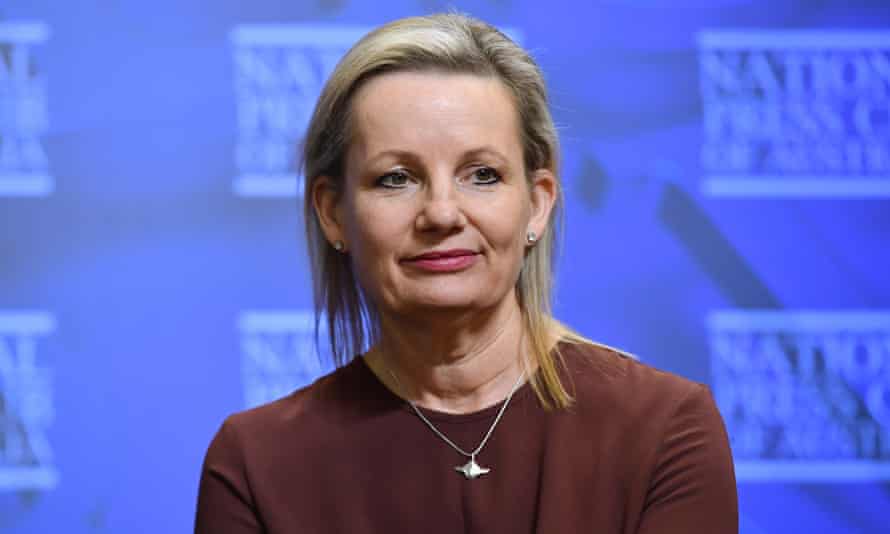Extract from The Guardian
Environment minister Sussan Ley stares down Senate on conservation laws and says damage by Kosciuszko feral horses makes her ‘extremely angry’

First published on Wed 16 Jun 2021 20.18 AEST
The Morrison government is attempting to stare down the Senate over changes to conservation laws, warning the wording of controversial new environment standards before parliament is “not negotiable” and will not be strengthened.
The push was immediately rejected by two key crossbench senators, with one declaring the legislation to change the laws – which all parties agree are failing – was “dead in the water” unless the standards were strengthened.
A statutory review of the Environment Protection and Biodiversity Conservation (EPBC) Act last year by Graeme Samuel, a former competition watchdog chief, found the laws were ineffective and the national environment in unsustainable decline.
Samuel recommended the introduction of national environment standards to boost protection of species and ecosystems. He said they could underpin a new, “single touch” approval process for major developments under which most responsibility would be handed to the states and territories.
A document titled “A pathway for reforming national environment law” released by the environment minister, Sussan Ley, on Wednesday said the government agreed with “the central pillars” of Samuel’s 38 recommendations, but did not respond to them individually.
Critics of the government’s stance include the crossbenchers Rex Patrick, Jacqui Lambie and Stirling Griff, who wrote a joint letter to Ley in February calling for greater action. With Labor and the Greens opposed, the government needs the support of at least one of the three to pass its legislation.
Speaking at the national press club, Ley said she was “working hard with the crossbench” and hopeful of reaching agreement, but the standards would not be strengthened before the legislation was passed.
“The standards as they are in the act in the parliament now are where we are going to start, so I have said that part is not negotiable,” she said.
Ley claimed unless two bills before the parliament – one to pass greater approval powers to the states and the other to create the government’s standards – passed before the end of the year “we will fall behind on environmental protection”.
Two of three crossbenchers immediately rejected Ley’s position.
Lambie said the crossbench had been clear it also wanted a better approvals process in place before the end of the year, but the minister’s reforms would be “dead in the water if she doesn’t tighten up the standards”.
“We’ll all be waiting a long time to fix our environmental laws if the minister insists on this my-way-or-the-highway approach,” she said.
Patrick stressed he would “not be supporting a bill that uses the standards that are proposed by the government”.
He said he believed the government would have to shift its position to get the bills passed given Samuel had been clear the current laws were unsustainable and needed to be changed “to protect the environment and economic activity”.
Griff was on personal leave and not available to comment. He has said he would not support a bill unless it included stronger standards and the creation of an independent environmental regulator. It is understood that remains his position.
Ley suggested the standards could be strengthened after the legislation passed. She said she would convene a roundtable with environment and business groups within 28 days of it passing to work on a new version. The legislation requires the interim standards to be reviewed within two years.

Samantha Vine, head of conservation and science at Birdlife Australia, said it was unlikely the minister’s planned pathway would arrest what scientists say is an extinction crisis and the group had “strong concerns” about the proposed environment standards before parliament. “It takes us away from the solution,” she said.
Suzanne Milthorpe, a campaign manager with the Wilderness Society, said both Ley and Scott Morrison had made it clear the changes proposed to date were “a result of listening to mining and gas interests rather than what our environment needs and the community wants”.
Ley was asked about damage to the alpine environment in the Kosciuszko national park caused by feral horses. She suggested she may attempt to force the New South Wales government to change its management of the area.
The minister said she had seen the horses’ impact from the air and it made her “extremely angry”. She was looking for ways to use the EPBC Act to prevent it.
“I’d love to find a provision in there that could actually allow the commonwealth to say to the states … ‘Kosciuszko is heritage-listed for its vegetation, it’s a unique ecosystem because it’s not found anywhere else in the world’,” she said.
The feral horse population in alpine parks has grown dramatically over the past two decades. The NSW government introduced legislation three years ago at the behest of the deputy premier, John Barilaro, to prevent them being culled.
Ley said she appealed “to everyone who feels strongly about this issue to make their voices heard”.
The Invasive Species Council, which wants all horses in the high country culled or removed, welcomed what it called “her desire for the government to intervene to address this important issue”.
“The Australian Alps are a priceless national heritage icon and home to many nationally threatened species. Any federal intervention to address the significant and unmitigated impacts of feral horses on the Alps would be strongly welcomed,” the council’s chief executive, Andrew Cox, said.
No comments:
Post a Comment